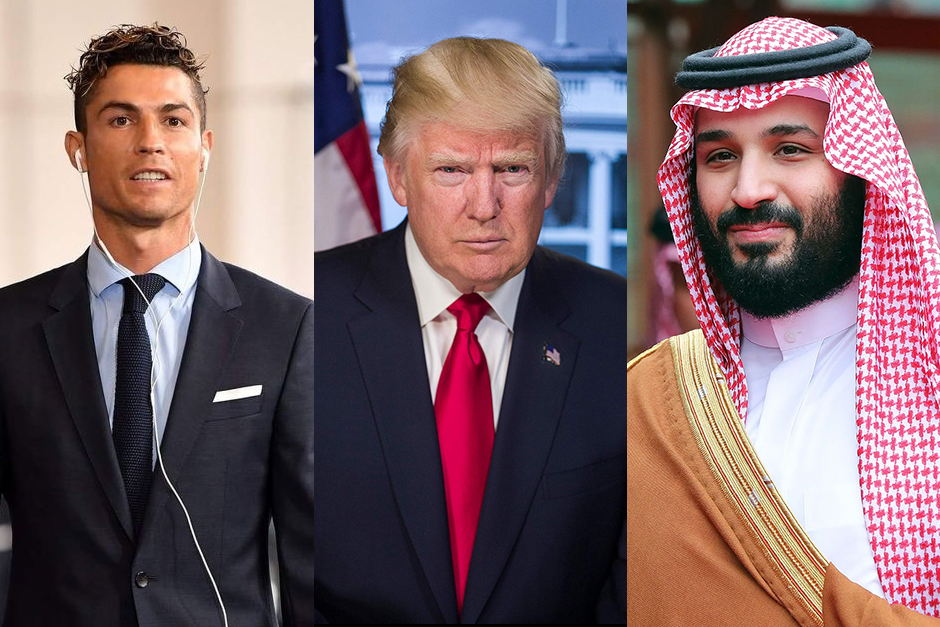In a diplomatic manoeuvre that blends high-stakes geopolitics with global celebrity, the White House is poised to host a remarkable delegation from Saudi Arabia. President Donald Trump is set to welcome Saudi Crown Prince Mohammed bin Salman, a figure at the epicentre of the Kingdom’s ambitious modernisation drive, but the visit holds an unexpected twist: accompanying the Crown Prince will be none other than football icon Cristiano Ronaldo. This unusual confluence of political power and pop culture signals a nuanced evolution in international diplomacy, particularly as nations like India watch the shifting sands of global alliances and influence.
Geopolitical Crossroads: US, Saudi Arabia, and Regional Stability
The core of the upcoming visit undeniably revolves around strategic interests between the United States and Saudi Arabia. As two long-standing allies, discussions are expected to cover a wide array of critical issues, from energy security and global oil markets to regional stability in the volatile Middle East. For Washington, reinforcing ties with Riyadh remains paramount, especially concerning counter-terrorism efforts, containing Iranian influence, and securing critical shipping lanes. The Kingdom is a cornerstone of American policy in the Gulf, and the meeting is likely to solidify existing partnerships and explore new avenues for cooperation, potentially including significant investment and defence deals.
From India’s perspective, these developments are keenly observed. India relies heavily on Saudi Arabia for a substantial portion of its crude oil imports, making stability in the Gulf region a direct economic imperative. Furthermore, Saudi Arabia hosts millions of Indian expatriates whose remittances are vital to the Indian economy. Any strengthening of US-Saudi ties, or shifts in regional power dynamics, inevitably holds implications for India’s own strategic energy security and economic interests. Delhi maintains robust bilateral relations with both Washington and Riyadh, and understanding the nuances of this high-level engagement is crucial for navigating its own foreign policy objectives.
Ronaldo’s Role: A Glimpse into Saudi Arabia’s Soft Power Strategy
While the political agenda dominates, the presence of Cristiano Ronaldo adds an intriguing layer of “soft power” diplomacy. The five-time Ballon d’Or winner, who currently plays for Saudi club Al Nassr, transcends the world of sport, embodying a global brand with unparalleled reach. His inclusion in such a high-profile diplomatic delegation underscores Saudi Arabia’s ambitious Vision 2030, a blueprint aimed at diversifying its economy away from oil and transforming its societal image on the global stage.
Saudi Arabia has invested heavily in sports, tourism, and entertainment as part of this vision. Ronaldo’s move to the Saudi Pro League was a landmark moment, drawing immense international attention to the Kingdom’s football aspirations. His presence at the White House is not merely ceremonial; it’s a strategic move to project a more open, modern, and engaging Saudi Arabia. It serves to highlight the Kingdom’s growing cultural and economic ties beyond traditional oil diplomacy, signalling its emergence as a player in the global entertainment and sports industries. This strategy aims to appeal to a younger, global audience and reshape international perceptions.
“This convergence of high-stakes diplomacy and celebrity power is a clear signal of Saudi Arabia’s multi-pronged approach to global engagement,” observed Dr. Priya Sharma, a Delhi-based geopolitical analyst. “For Washington, it’s about reinforcing alliances; for Riyadh, it’s about projecting a modern, diversified image beyond oil, using every tool in the diplomatic toolkit – including sports.”
Implications for Global Perception and Diplomacy
The spectacle of a global sports icon sharing the stage with political leaders at the White House offers a fascinating glimpse into the future of international relations. It reflects a growing trend where cultural diplomacy and celebrity endorsements are increasingly leveraged to achieve geopolitical objectives. For Saudi Arabia, Ronaldo is more than just a footballer; he is an ambassador for a nation in transition, helping to bridge cultural divides and project an image of progress and opportunity. This approach is something India, with its own rich cultural heritage and burgeoning sports sector, can relate to, as nations increasingly seek to harness soft power to enhance their global standing.
As the world watches the White House meeting unfold, it will not just be observing critical bilateral discussions but also witnessing a masterclass in modern diplomacy, where traditional power politics meets the undeniable influence of global icons. The visit of Crown Prince Mohammed bin Salman and Cristiano Ronaldo to Washington is set to be a significant event, symbolising both the enduring strategic alliances and the evolving tactics of nation-branding in the 21st century.




